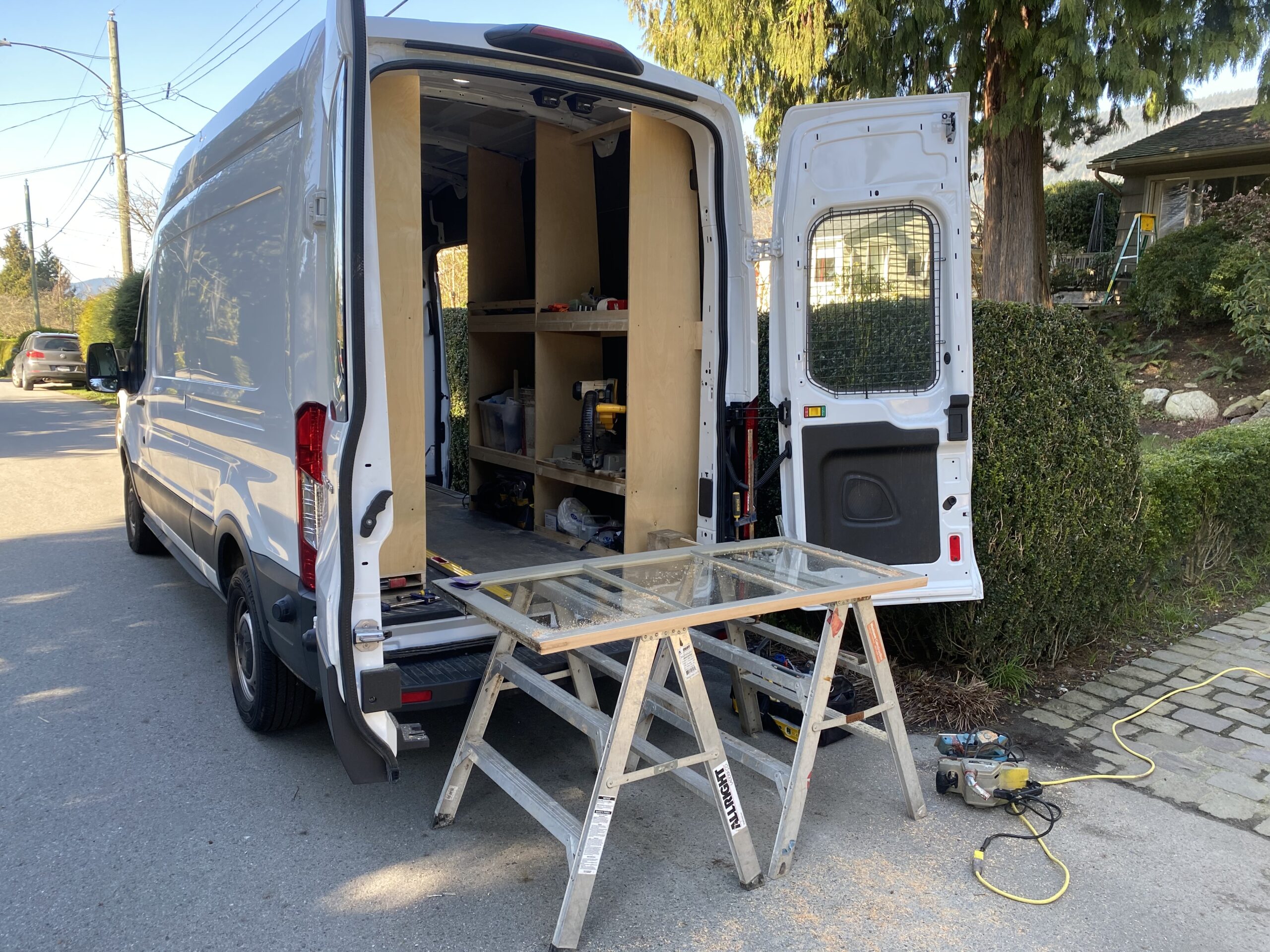If you’ve got the skills and the drive, starting your own handyman business is one of the smartest moves you can make, especially if you’re tired of clocking in for someone else every day. You don’t need a bunch of money to get started. I quit my job and started out a of a beat up Volkswagen Golf with cloth seats. What you need is initiative, some basic tools, and a willingness to start small and build it up the right way. This isn’t a risky venture, this is your path to freedom, even if you’re not even that handy to begin with.
These days, I run The Solo Handyman alongside my local handyman business to help other aspiring or already-working solo handymen grow lean, profitable operations. But before that, I started my own handyman business from scratch – no big investment, no shiny van, just effort and a willingness to push through a lot of psychological barriers.
Here’s exactly how to do it, step-by-step.
1. Help Friends, Family, and Neighbors First
Your first jobs are already around you. Reach out to people you know. Ask your neighbor if they need a shelf put up and let them know what you’re starting. Offer to patch drywall for your cousin or replace a door handle for your aunt. These are the easiest jobs to land because there is already trust. The crazy thing too, is they pay big money. Even a $600 job for an aunt is more than you’d make at any job in the trades for a days work.
If you’re starting your business from a background in the trades, reach out to builders or tradesmen you know that need a hand or a punch list taken care of. New handyman jobs pop up every day because the world needs people like you to maintain it. Why would you work 8 hours a day at $30-$40 when you eventually work your way up to $100-$150 on your own schedule?
When you’re done, ask for online reviews, take good before-and-after photos, and use these jobs to build a small portfolio. These first steps cost nothing but give you the base to grow.
Starting with friends and family allows you to make a few mistakes and work out the bugs with people you know. Just remember to document everything so you can start to build systems around your processes.
2. Start It On the Side
You don’t have to quit your job to get this going. I was working full-time in construction when I started taking on small jobs after hours and on weekends. It’s the perfect way to test the waters, get your name out there, and start generating income without risking your paycheck.
Once you’re booked out more often than not, you’ll know when it’s time to take the leap full-time.
3. Use What You Have to Get Around
Don’t worry about having the perfect setup. I started with a hatchback with no air conditioning and some old tools. If all you have is a bike, use it. If you’ve got a car, great. If not, walk or take the bus to your local jobs. Most handyman work doesn’t need a truckload of equipment. One of the best electrician’s I ever knew showed up to work with a backpack. I never even saw his van…not even sure he had one.
In the spirit of the “no money” title of this blog, you can walk door to door and ask folks if you can reorganize their yard or pull weeds in exchange for cash or a review online. No tools and no money needed.
Start local, stick to jobs that fit what you can carry, and upgrade only when it makes financial sense.
4. Set Up Free Online Listings
One of the best things you can do is get found online. Start by setting up a free Google Business Profile. It lets your business show up in search results and Google Maps – huge if you want local calls.
Then create a Facebook Page for your handyman business and link it to your Google listing. Post photos, job updates, and respond fast when people message you. These two platforms alone can bring in consistent leads.
⚠️ Important: Don’t offer plumbing or electrical work unless you’re licensed for it. It’s not worth the liability. And don’t forget to check your state or local laws to make sure you don’t need a contractor’s license – even for small jobs. You can look up your area’s rules here.
5. Guerilla Marketing Still Works Great
You don’t need a marketing agency, you need a Sharpie, some paper, and a bit of time.
- Write simple flyers: “Local Handyman – Reliable, Affordable – Call/Text [Your Number]” and leave them at coffee shops, community centers, hardware stores, laundromats.
- Knock on doors around your neighborhood. Be friendly, not salesy. Just let folks know you’re doing handyman work locally.
- Ask every happy customer to refer you. Word-of-mouth still beats any ad spend.
6. Post Your Work on Social Media
Don’t just do the job—show the job. Post before-and-after photos, quick tips, and updates to Instagram or Facebook. People want to see who you are and what you do. Time-lapse videos, tool tips, or even short stories from jobs (keep it respectful) all help build trust and visibility.
You don’t need to go viral—just be consistent. If you want a basic social media guide, Buffer’s strategy breakdown is a solid starting point.
7. Starting With Nothing = Starting With an Advantage
Here’s the thing: having no money at the start is actually a strength. You’re not overloaded with debt, payroll, or expectations. You’re nimble. You can show up to every job and every estimate yourself. You can really get to know your clients.
People love that kind of personal service, and it sets you apart from bigger outfits that just send whoever’s available that day.
8. It’s Not Risky—It’s Smarter Than a 7am-4pm Gig
A lot of folks think going solo is risky. It’s not. You’ve got way more control over your time, your income, and your future. The handyman business is low-overhead, low-risk, and high-upside. There’s no inventory. No staff. No retail lease. Just you, your skills, and your service.
Compare that to clocking in every day while someone else keeps the profit. Which sounds riskier to you?
9. Stay Frugal, Stay Persistent, and Build It Right
When the money starts coming in, don’t blow it on gear you don’t need. Reinvest smart. Upgrade tools only when the job calls for it. Keep your costs low and your margins high. Learn how to use programs like Quickbooks to track your revenue and remember to take things slow.
Over time, if you stay consistent and keep your standards high, you’ll end up with a well-oiled, high-income handyman machine that works for you—not the other way around.
Stop worrying And Just Start Already
You don’t need a pile of money to start a handyman business. You need effort, patience, and a smart approach. I built mine from nothing, and now I teach other solo handymen how to do the same through The Solo Handyman brand.
If you’re ready to break out on your own, start small, start local, and just start. You’ll figure the rest out along the way.



